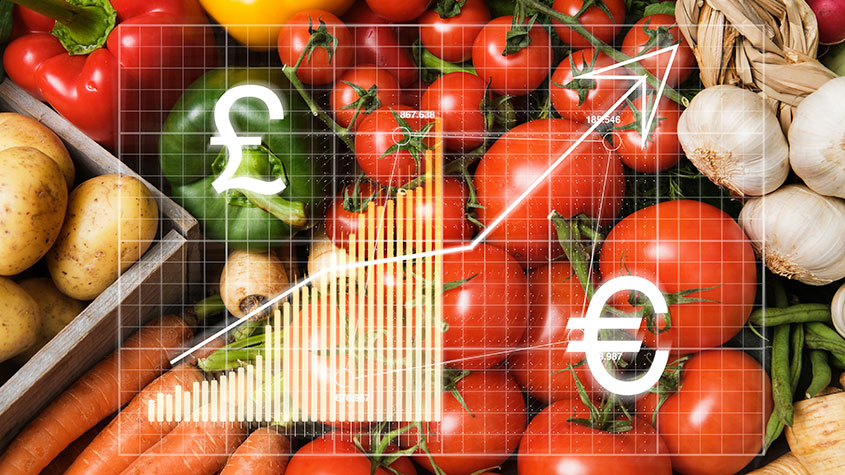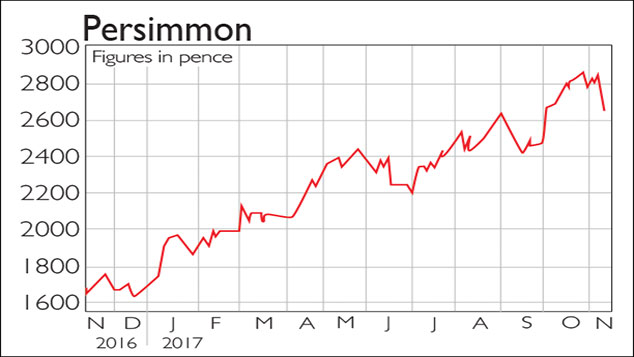Get the latest financial news, insights and expert analysis from our award-winning MoneyWeek team, to help you understand what really matters when it comes to your finances.
You are now subscribed
Your newsletter sign-up was successful
Want to add more newsletters?

Twice daily
MoneyWeek
Get the latest financial news, insights and expert analysis from our award-winning MoneyWeek team, to help you understand what really matters when it comes to your finances.

Four times a week
Look After My Bills
Sign up to our free money-saving newsletter, filled with the latest news and expert advice to help you find the best tips and deals for managing your bills. Start saving today!

Retailers helped the FTSE 100 climb higher in early action, but investors remain wary with eurozone inflation data for December showing the region slipped into deflation for the first time since 2009.
In early trading this morning, the FTSE 100 was ahead 28.7 points or 0.45% to 6,395.2.
Supermarket chain Sainsbury's (LSE: SBRY) lifted sentiment over retailers after it posted a 1.7% decline in third quarter like-for-like sales excluding fuel. That was better than expectations of a 3% drop and helped its shares put on 1%. The group warned, however, that the outlook for the rest of its year remains "challenging".
MoneyWeek
Subscribe to MoneyWeek today and get your first six magazine issues absolutely FREE

Sign up to Money Morning
Don't miss the latest investment and personal finances news, market analysis, plus money-saving tips with our free twice-daily newsletter
Don't miss the latest investment and personal finances news, market analysis, plus money-saving tips with our free twice-daily newsletter
Investors quickly read across Sainsbury's better-than-expected result to rivals ahead of their own third quarter updates, which includes the key Christmas period. Tesco (which reports on Thursday) put on 2% and Morrisons gained 3.2%.
Elsewhere, housebuilder Persimmon (LSE: PSN) notably edged 0.4%aheadafter it revealed that it sold 17% more homes at higher prices in 2014.
Away from corporate action, eurozone consumer price inflation for the 12 months to December came in at -0.2%, down from +0.3% in November and undershooting economists' consensus forecast of -0.1%.
Ben Brettell, senior economist at Hargreaves Lansdown says the news heaps "near-irresistible pressure" on Mario Draghi to inject further monetary stimulus when the ECB meets on 22 January.
Brettell adds: "Draghi has so far refrained from full-blown quantitative easing [QE], in the face of stiff opposition from Germany. The markets have been concerned about outright deflation for months, and as such a failure to launch QE two weeks tomorrow would almost certainly be received badly.
A significant portion of the fall in eurozone inflation can be attributed to the plummeting price of oil, which dropped below $50 a barrel yesterday. Brettell says this could prove positive for the euro zone economy, as lower fuel costs increase consumers' disposable incomes.
But he adds: "If deflation becomes entrenched and consumers begin to expect prices to fall, it can be dangerous. Spending decisions will be deferred in expectation of lower future prices and economic stagnation could result.
"Deflation is particularly worrying in the euro zone given the high levels of indebtedness in many member states, as falling prices increase the real value of debt."
Still, there will be a silver lining for investors from more eurozone stimulus measures. QE programmes in the US, UK and Japan have sparked dramatic rallies in those countries' stock markets, and the same would likely be the case for European stocks.
Brettell points out, however, that with QE expected to weaken the euro, this could offset gains in sterling terms for those based in the UK.
Get the latest financial news, insights and expert analysis from our award-winning MoneyWeek team, to help you understand what really matters when it comes to your finances.
Kam is a former deputy editor at Hemscott Invest and online editor, City A.M and he was also previously the Digital Editor at IFA Magazine. Kam is currently a senior journalist at The Global Treasurer and contributes to MoneyWeek. Kam shares expertise on the FTSE 100, investing and global stocks.
-
 Can mining stocks deliver golden gains?
Can mining stocks deliver golden gains?With gold and silver prices having outperformed the stock markets last year, mining stocks can be an effective, if volatile, means of gaining exposure
-
 8 ways the ‘sandwich generation’ can protect wealth
8 ways the ‘sandwich generation’ can protect wealthPeople squeezed between caring for ageing parents and adult children or younger grandchildren – known as the ‘sandwich generation’ – are at risk of neglecting their own financial planning. Here’s how to protect yourself and your loved ones’ wealth.
-
 How to profit from rising food prices: which stocks should you invest in?
How to profit from rising food prices: which stocks should you invest in?Tips Food prices are rising – we look at the stocks to avoid and the one to invest in this sector.
-
 Persimmon yields 13.8%, but can you trust it to deliver?
Persimmon yields 13.8%, but can you trust it to deliver?Tips With a dividend yield of 13.8%, Persimmon looks like a highly attractive prospect for income investors. But that sort of yield can also indicate a company in distress. Rupert Hargreaves looks at the numbers to find out if it's sustainable.
-
 What the merger between Sainsbury’s and Asda means for you
What the merger between Sainsbury’s and Asda means for youFeatures Sainsbury’s and Asda have decided to merge. John Stepek looks what it means for the troubled UK supermarket sector and asks: is it a good deal?
-
 If you’d invested in: Persimmon and Centrica
If you’d invested in: Persimmon and CentricaFeatures Persimmon is the UK’s second-largest housebuilder. In November, it said the total sales rate per site for the third quarter was in line with the same period last year.
-
Britain’s convenience store battle
Features Sainsbury’s has bid £130m to buy Nisa, the mutually owned consortium of more than 1,300 independent retailers, which operates 3,000 small shops.
-
 Should you buy housebuilders?
Should you buy housebuilders?Features House builders have seen their shares hammered since the Brexit vote. Is there further to fall – or is this a buying opportunity? Sarah Moore investigates.
-
The ten most-hated shares in the FTSE
Features These are London’s ten most-hated shares, judged by the percentage of stock being shorted.
-
Not such a Merry Christmas for supermarkets
News The festive period provided no let up for the beleaguered supermarket sector.

